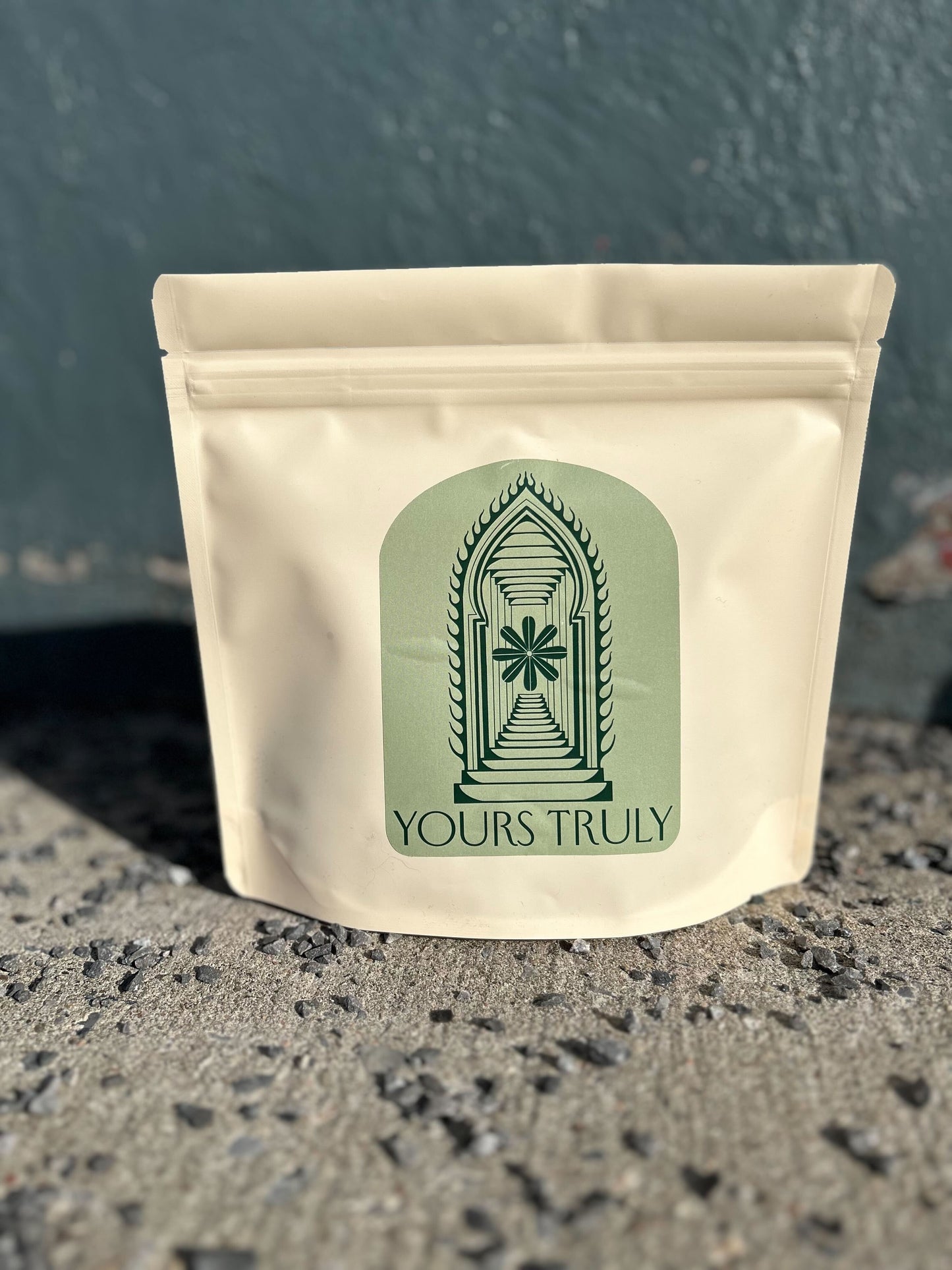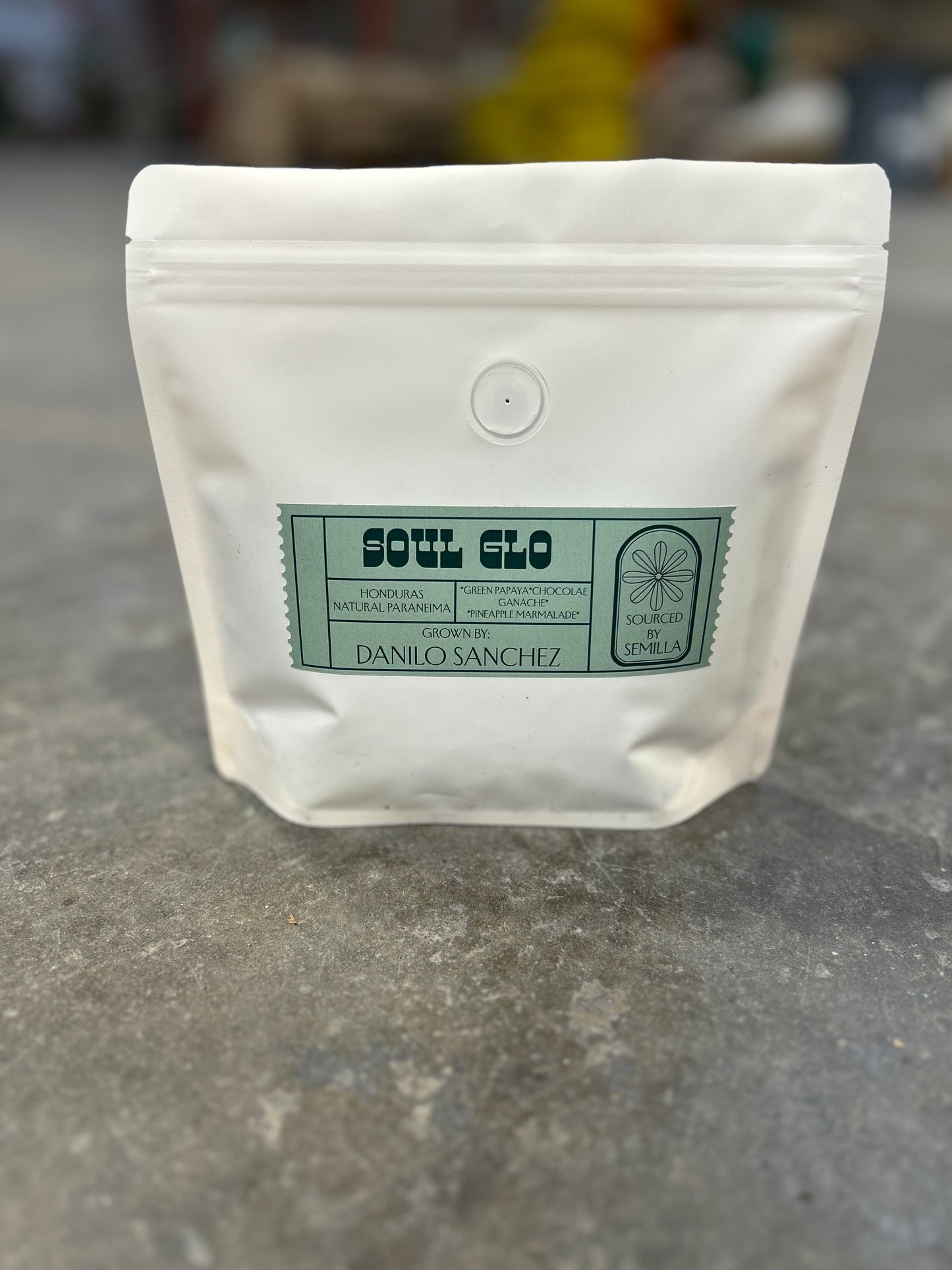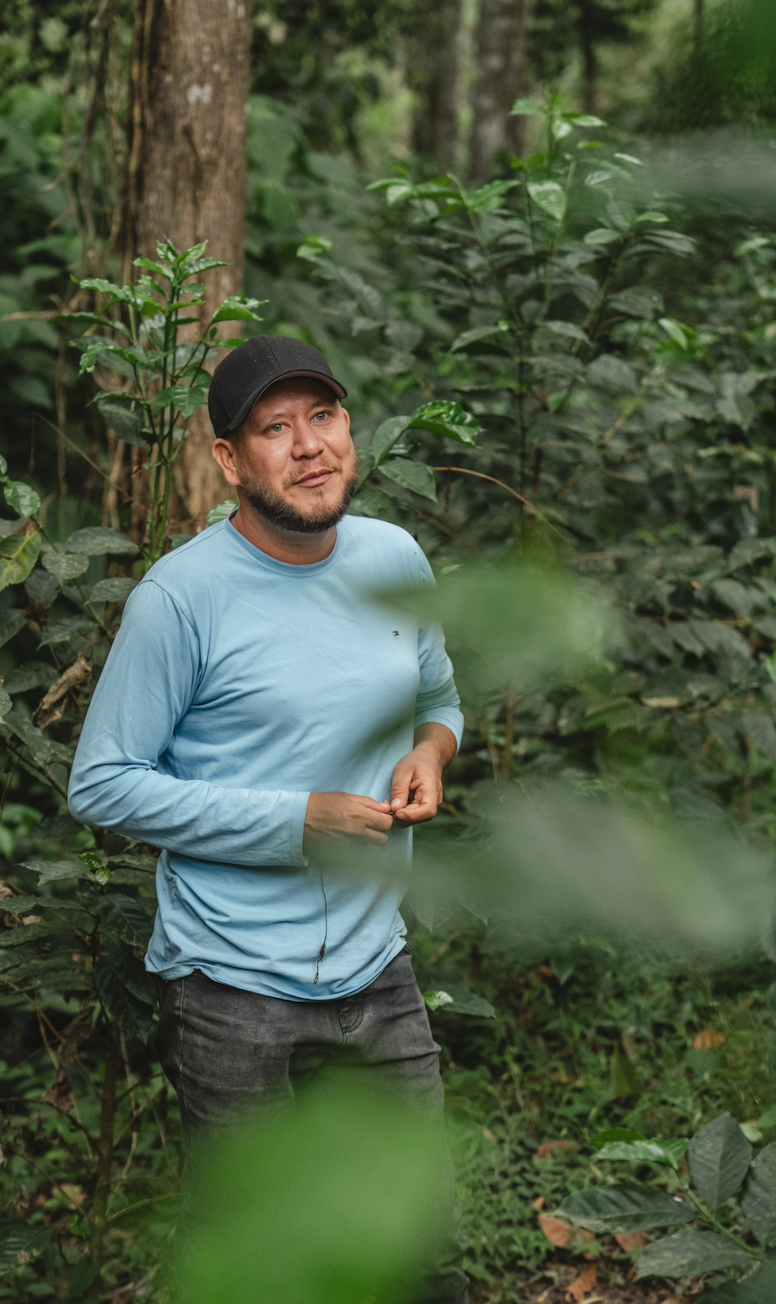Yours Truly
Soul Glo
Soul Glo
Couldn't load pickup availability
Turn on, tune in, and illuminate - your inner glow awaits. One sip and the funk reverberates, a tropical citrus grove blooms in the island of your mind.
Enjoy as pour over.



JESUS GALEAS
Smallholder Spotlight
Jesus has played an integral role in motivating his fellow community members to focus on specialty micro lot production, in large part due to his work with the Honduran Coffee Institute (IHCAFE). For seven years, he worked with the organization to assist coffee growers across the country in understanding their issues, from handling soil analyses to giving instruction in harvesting and processing coffee.
As he explained, in this work he sought “to motivate all the producers he could to begin working with specialty coffee and to invest in proper farm practices.”
Technical Specs
Variety
Pacamara
Process
Natural
Processing details: Cherries are picked daily by four pickers, floated to remove defects, and then stored in sealed GrainPro where they undergo low oxygen fermentation for 48 hours. They are then dried on raised beds in a solar dryer for 35 days, before being placed in hermetically sealed bags to preserve their quality.
Farm Details
Variety: Pacarama
Farm: La Valeria
Farm size: 4 hectares
Location: Montecillo, Intibuca, Jesus de Otoro, Honduras
Altitude: 1350 masl
-
Farmgate Price
12000 Lempira/quintal green coffee
The regional farmgate price in 2024: 3500 Lempira/quintal green coffee
-
Freight on Board (FOB) Cost
$5.10 USD
per lb of green coffee


